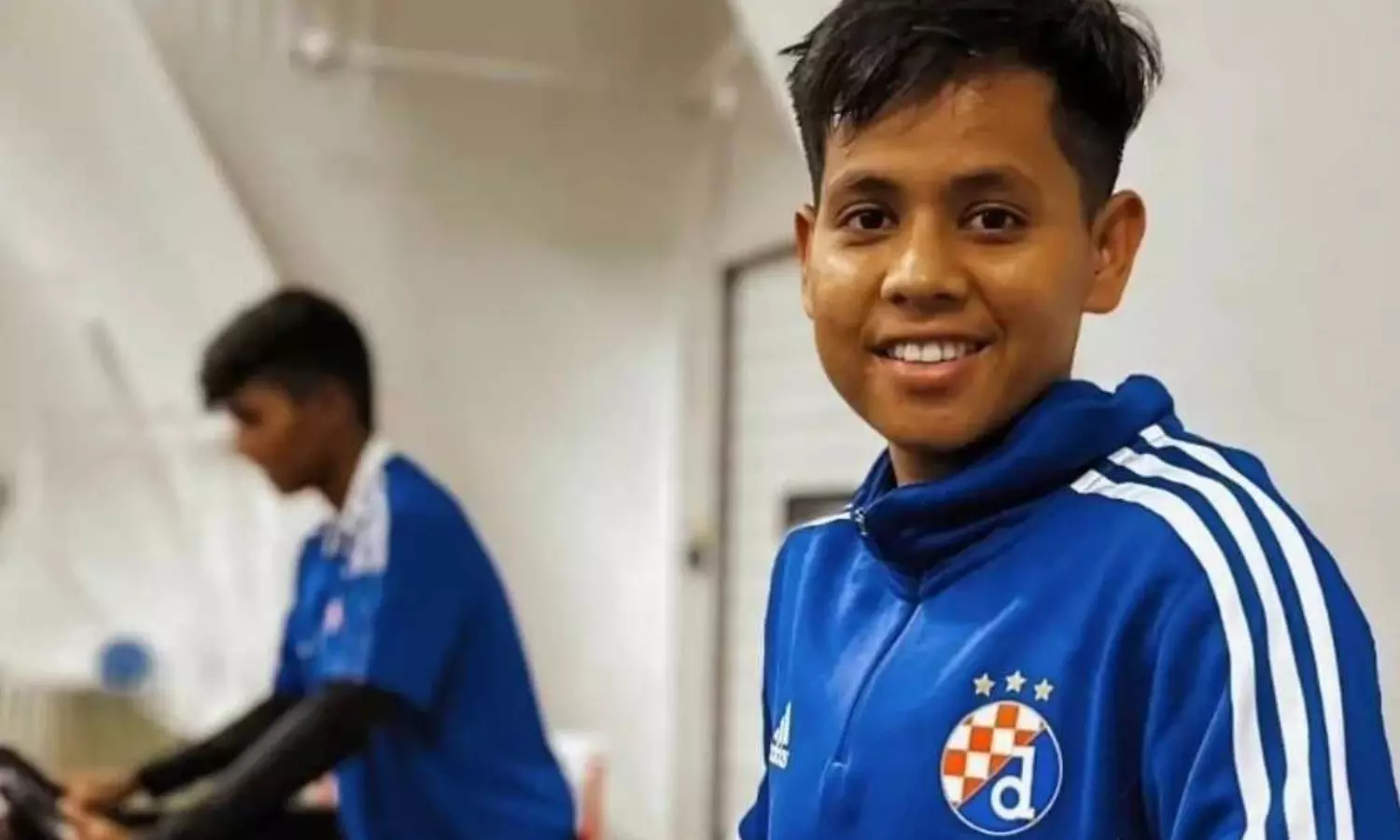Football
Kashmina's rise from Manipur to Dinamo Zagreb strikes a chord in women's football
Kashmina becomes the newest Indian women's footballer to secure a one-year contract with the Croatian powerhouse WFC Dinamo Zagreb.

Kashmina training with Dinamo Zagreb
In the realm of Indian women's football, the spotlight has recently shifted to an extraordinary talent, Kashmina, whose journey from the dusty streets of Manipur to the prestigious WFC Dinamo Zagreb in Croatia is nothing short of a rags-to-riches tale.
Kashmina's tryst with football began at the tender age of six, being forced by her father, who assumed the role of her first coach. Under his guidance, she gradually nurtured a passion for the sport and navigated the junior age groups of Indian football, laying the foundation for a promising career.
However, Kashmina's path to success was riddled with challenges. A knee injury in 2018 threatened to derail her dreams, but undeterred, she bounced back and, in 2019, joined Gokulam Kerala. Little did she know that this would mark the beginning of her journey to Europe.
"I had a knee injury in 2018, and then I joined Gokulam Kerala in 2019. After three years, I am here in Europe. I was not interested in football, but my father wanted me to play football at the highest level. I had no such big dreams. When Bala Devi started playing in Europe, I was nursing my knee injury. That is when I wanted to play in Europe."
In the chorus of Kashmina's narrative, there emerges a poignant interlude - the influence of Bala Devi, a guiding star in Indian women's football, whose luminosity ignited a spark within Kashmina.
She shares, "After watching Bala di, I asked my father, can I play in Europe, he asked me to trust myself and do my best. You will reach there. When I was playing at Gokulam Kerala, I realised that I have to work very hard to play at the top level. Europe is different from India, and there is a considerable difference in speed and the playing style."
She also added about the language problems, "There is a language barrier, but it is not very difficult."
Early struggles
For Kashmina, who once couldn't afford a pair of boots and had to pick one from a dustbin, this achievement is the realisation of a dream that seemed impossible. Her resilience and determination to overcome financial hurdles and cultural differences make her journey truly inspirational.
"My life has been difficult. When I started playing, I had no jersey or any kit with me. Coming from a poor family, I had a shabby appearance and no boots. I picked up a boot from the dustbin and I picked it up to play football. I used to cycle during winters in shorts due to lack of money. Eventually, my father earned some money and got me a second-hand jersey and shoes," she recalls.
But struggles didn't stop there for Kashmina, "I had no money to make a passport during the under-13 days and eventually, my mother stepped in with some money by working in the agricultural fields to help me with the passport."
Way forward for Indian football
Her narrative extends beyond the borders of the football pitch, encapsulating the resonances of struggles faced by women footballers in India. "We have talented players in India. After Bala di, others such as Manisha, Jyoti, and Saumya went to Europe. In Europe, the training level is difficult and one has to work hard to reach here. We need more competitive matches in India to improve at the international level. Apart from IWL, we need a second division."
Kashmina becomes the lyrical advocate, advocating for more competitive matches and establishing a second division, providing opportunities for those who remain sidelined. "Some players can’t play in the IWL and will not get a chance to play and hone their skills. We have tiered tournaments in men’s football, but we don’t have any for women’s football. Due to the lack of many tournaments, women footballers also get complacent by sitting at home during the off-season. In Europe, there are at least four tournaments in one season that keep the players hungry."
She also took a moment to mention the riots happening in her home state and its effect on sports, "Manipur is suffering at the moment, and the sports are halted there. The grassroots sports are stopped due to the crimes happening there."
